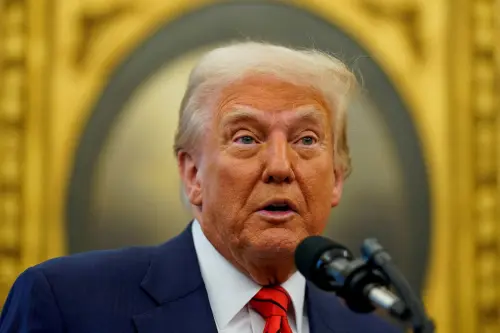European leaders rushed on Thursday to secure a role in peace negotiations regarding Ukraine after U.S. President Donald Trump reached out to Russian President Vladimir Putin to initiate talks.
The unexpected move by Trump caused concern among European nations, which aspire to play a significant part in the peace process due to the potential impact on their security. German Foreign Minister Annalena Baerbock emphasized the importance of European involvement, stating, "Peace in Europe is at stake; that's why we Europeans need to be brought in."
French Defence Minister Sebastien Lecornu cautioned against prioritizing "peace through weakness," as opposed to the Trump administration's focus on "peace through strength."
European officials expressed disappointment with Washington's concessions to Moscow prior to the start of negotiations. Lithuanian Defence Minister Dovile Sakaliene urged Europe not to rely solely on Trump and Putin for a solution, describing it as a "deadly trap."
Despite hopes of influencing U.S. strategy at recent meetings in Brussels and Munich, European leaders realized the Trump administration was proceeding without their input.
In a shift from pre-2014 borders, U.S. Defense Secretary Pete Hegseth remarked that Ukraine's NATO membership would not be part of a peace deal, following Russia's annexation of Crimea in 2014.
After calls between Trump, Putin, and Ukrainian President Volodymyr Zelenskiy, European foreign ministers emphasized their essential role in future negotiations. They plan to engage in direct discussions with U.S. officials at the Munich Security Conference.
Highlighting Europe's critical role in implementing security guarantees, Dutch Defence Minister Ruben Brekelmans emphasized the necessity of European involvement in the peace process.
NATO Secretary General Mark Rutte downplayed alliance differences, emphasizing the shared objective of achieving lasting peace in Ukraine.
